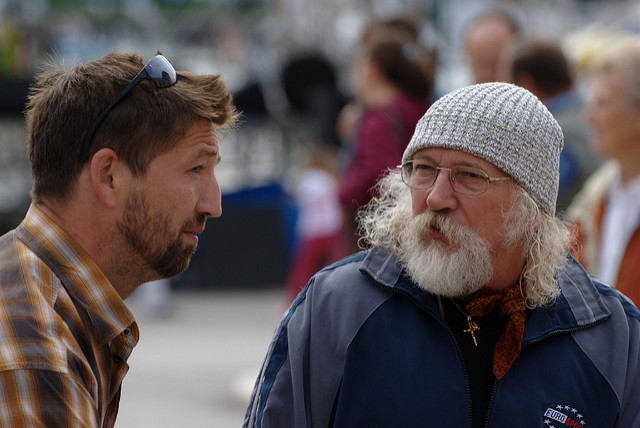Only one in 5,000 people in the U.S. reach the age of 100. But, there are places where five to ten times as many people live to 100. Some researchers say that the top predictor for a longer life is have at least a few close relationships.
People live longer when they are surrounded by friends and family who care for them, in places where old age is respected. Some analysts say that between 10 and 25 percent of a person’s life span can be explained by the person’s genes; the remaining 75-90 percent of the person’s longevity is determined by lifestyle. Based on his studies, Dan Buettner explains in his TedTalk, that people with a plant-based diet, who are socially engaged and have purpose, live longer.
Buettner found that Seventh Day Adventists in Loma Linda, California and Okinawans who wake up in the morning with a sense of purpose and little stress, and who connect with their families and friends regularly, are more likely to live longer than others. They surround themselves with people who are “trusting and trustworthy.”
According to Buettner, both men and women in the highlands of Sardinia live into their 100’s far more often than people in the U.S. There are ten times as many centenarians there than here. These Sardinians are surrounded by multi-generations of family members and friends. Their diets and daily physical activity may help explain their long lives. Mostly, it’s their social networks, their personal interactions with family, friends and neighbors.
Psychologist Susan Pinker also studied Sardinians to understand why they live longer than people in the U.S. She notes in her TedTalk that women typically live six to eight years longer than men in the US. Women are more likely than men to spend time with their friends and family, talking to them, dining with them and bonding with them.
For a longer, healthier life, Pinker argues that it’s important to have at least three stable relationships. These relationships can lower your stress level and rates of dementia. They can make it more likely for you to survive a disease. She says that “social isolation is the public health risk of our time.”
You don’t have to be positive or upbeat to enjoy a long life. You need to be socially engaged, surrounded by people who love you and care about you. To promote a longer life with fewer chronic conditions, we benefit from buddies on whom we can rely to spend time with us. Casual contacts with the postman and the grocery store clerk also are valuable. So are dogs and other pets.
Of course, diet, exercise, maintaining a healthy weight, and not smoking or drinking too much alcohol all contribute to a healthy, longer life. But, the most likely way to improve your odds of living a long life is to have buddies, people with whom you are socially interacting regularly, people you can count on to take care of you, people you can share stories with.
And, to be clear, we thrive with face-to-face contact–eye contact, physical contact. This contact releases oxytocin, lowers stress, generates dopamine–gives us a little high. It’s far different from online activity.
A version of this post was published on August 20, 2017.
Here’s more from Just Care:










